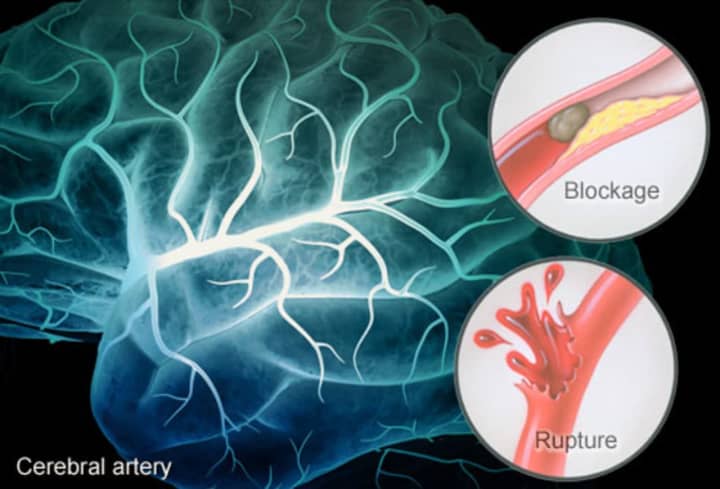"The earlier we give treatment, the better the outcome," said Dr. Paul Lleva, a Phelps Medical Associates Vascular Neurologist. "For every minute missed, there is an increased number of neurons in the brain that die. The earlier we're able to treat it, the better chances are for recovery."
Caused either by a blocked artery - known as ischemic - or by the leaking or bursting of a blood vessel - called hemorrhagic - strokes are one of the leading causes of death and permanent impairment in the United States. Although the estimated worldwide percentage of fatalities after a first ischemic stroke ranges from 16 to 23 percent, and the majority of episodes do not result in death, those who survive these brain clots and hemorrhages can experience lifelong disabilities.
In order to reduce the chance of death or permanent impairment, Lleva said people should not wait if stroke signs become apparent. "When an ischemic stroke happens, which makes up about 85 percent of all cases, it's important that symptoms are recognized as soon as possible," said Lleva. "We can attempt to flush out the clot within four and a half hours of it happening with a drug known as Alteplase (a tissue plasminogen activator), which may help restore blood flow to the brain." If stroke victims wait longer than six hours to receive treatment, the chances of a good clinical outcome are less.
To ensure quick diagnosis and treatment of a stroke, follow the acronym "F.A.S.T.," as patients who exhibit the following symptoms may be experiencing a stroke.
- Face - one side droops when smiling
- Arms - when two arms are raised, one arm drifts down or won’t lift at all
- Speech - words are slurred or sound strange
- Time - If you notice these symptoms, don’t waste time – call 911 immediately
"If a stroke is not treated immediately, it may evolve and affect a larger volume of brain tissue," said Lleva. "We want to salvage those threatened areas called penumbra. Patients treated sooner have been found to have less disability and develop fewer complications."
Like many medical conditions, strokes are highly preventable. "80 percent of strokes can be prevented by following a healthy lifestyle," said Lleva. He encourages people to visit their doctors regularly and monitor for potential warning signs. "The chances of developing a stroke or heart disease are much lower among those who monitor their health than people who do not have regular visits with doctors." Consuming a diet rich in fruits, vegetables, whole grains, seeds, nuts, poultry and fish, as well as avoiding tobacco and monitoring blood pressure are all simple preventative measures people can take to reduce the risk of stroke.
To learn more about the stroke services offered by Phelps Hospital, click here.


